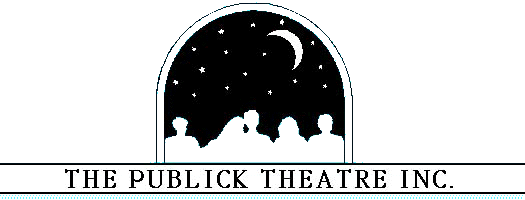

Despite a few flaws, Yeomen of the Guard at the Publick Theatre is a superbly-directed show that capitalizes on the strengths of an open-air amphitheater. There were a number of innovations and interpretations that were new to me, and despite being a traditionalist, I enjoyed most of them.The setting showed the castle courtyard, with a stage right stairway to an upper level walkway and cell doors at the stage left end of the walkway. The river was implied to be running just the other side of the wall. This allowed the crowd to realistically threaten to throw Jack Point into the river, and allowed for the arqebus to be fired from the river's edge as well. It even allowed for an ending I had never seen, though it is clearly foreshadowed in the words. ("Food for fishes only fitted"). Good job by scenic designer Brent Wachter.
The Yeomen costumes were the spectacular and familiar ones we had seen earlier, provided by Janice Dallas and the Sudbury Savoyards.
The accompaniment was provided by birds in the nearby trees, but they seemed to have the sense to go to sleep after the opening number. (They fit quite nicely into Phoebe's opening number, but might have seemed a little appropriate had they still been active during the execution scene.) More persistent were the two pianos, which did an accurate job. Whether two pianos can adequately convey Sullivan's music is a matter for discussion among people with better music credentials than mine; I found them fully satisfactory, and those people can consider themselves warned.
Sarah Reese (Elsie Maynard) was excellent, with a strong voice, though I suspect she came in a beat early at "Oh, Mercy, thou whose smile has shone". The advantage of not having a full orchestra was seen in that the error, if it was not my imagination, was quickly compensated for by the accompanist. The only major weakness in the music: I suspect the music director yielded to the wishes of the stage director on the a capella numbers (Alas, I waver to and fro and Strange adventure); if the singers were less spread out they might have been better able to maintain their pitches.
Some minor dialog changes were necessitated to allow Jack Point to sing "Oh! a private buffoon is a light-hearted loon" to the audience, to show Point's low spirits before Wilfred's Second Act entrance. The more usual spot is to sing it to Wilfred a few minutes later, to explain to him how easy it is to be a jester.
I had no problem with these changes, even though it was arguable whether the new position for the song was better. But I was upset by several cuts, and even outright changes, that were made in other places in the dialog. Some of my favorite lines were missing, such as "and I am but a girl, and so, when I am highly wrought, I faint." The scene in which Phoebe expresses her dismay at how things have turned out, and loses control until she blurts out her fatal admission, was shortened and made less convincing. Sgt. Meryll's wooing of Dame Carruthers was vastly abbreviated. I can only guess that these cuts, and others, were made to shorten the program by something like ten minutes.
On the other hand, some innovations were positive. Only Sgt. Meryll sang the chorus accompaniment to the first verse of "When our gallant Norman foes", making the second ending a striking contrast when everybody joined in. The interaction between Point and Elsie Maynard in response to Sir Richard Cholmondeley was unusually convincing, and avoided the usual effect of making Point seem self-centered and uncaring. (There was a twist I strongly object to, in that Cholmondeley had been given much more than the hundred crowns for the prospective bride, but only offered the hundred to Elsie. Why gratuitously vilify his character?) Other character interactions occurred, clarifying or at least shedding new light on familiar situations. Director Bob Jolly, back to direct his eighth Savoy operetta at the Publick, clearly understood the action he was calling for. His having performed a number of the patter baritone roles, listed in his biography, surely helped.
The most satisfying aspect of his direction was the timing, to set up the musical numbers. Our editor has trained me (through her own example) to appreciate "making the music happen." The singers would never reach a pose, and wait for the music so they could start to sing. Instead, they would go about their business, and at some point dictated by the action, they would begin to sing -- and, of course, the music was ready for them at the same moment.
This show runs till June 27th, and I urge you to see it.
Richard N. Freedman, president New England Gilbert and Sullivan Society
| Previous Seasons | History | Children's Programs | Project Shakespeare |
|---|
URL: http://www.sheldonbrown.com/public/review-yeomen.html